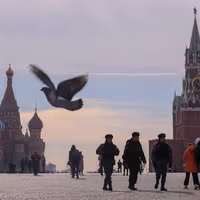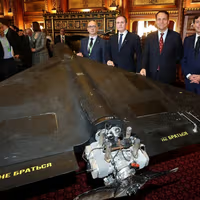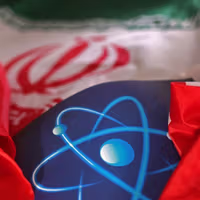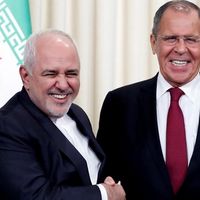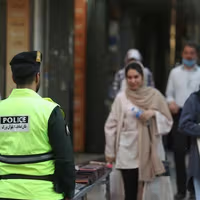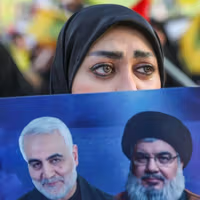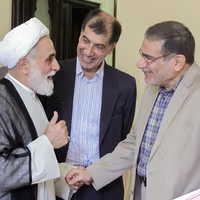Former diplomat Ramin Mehmanparast told the reformist Etemad daily that both Iran and the United States may ultimately settle on a limited, temporary agreement since the other two options—a full deal and war— are unlikely and undesirable.
“The third scenario is a middle-ground option: no comprehensive agreement, and no military conflict,” he said, asserting that an interim deal could see Iran addressing concerns about the nature of its nuclear activities in return for sanctions relief.
“(This) is the most likely, as the US believes it can sustain maximum pressure without going to war—tightening sanctions to economically squeeze Iran and force concessions,” he said, adding that Arab states would favor this outcome as it avoids escalation while containing Tehran’s regional power.
The cautious optimism on both sides appears to have faded in recent weeks.
US President Donald Trump on Tuesday said Iranian negotiators have become “much more aggressive” in recent weeks, confirming nonetheless that the sixth round of talks would take place this week.
Mixed assessments
Sensing troubled waters ahead if talks collapse, some moderates in Iran are becoming more vocal in urging flexibility, while hardliners push for an even tougher stance to deter the West.
“Iran must show mild and flexible responses … as confrontation could have destructive consequences,” political analyst and former diplomat Ali Bigdeli was quoted as saying by reformist daily Etemad.
In another interview with the conservative website Nameh News, he urged Tehran to seek Western concessions in return for agreeing to enrichment levels between 1% and 2.5%.
These proposals come as the International Atomic Energy Agency (IAEA) intensifies scrutiny of Iran’s nuclear program.
At the IAEA Board of Governors meeting in Vienna on Monday, Director General Rafael Grossi warned that Iran still has not explained uranium traces found at undeclared sites and has reduced transparency, obstructing monitoring efforts.
Etemad warned in a commentary that a formal IAEA rebuke could revive the six UN Security Council resolutions suspended under the 2015 deal.
In Nameh News, analyst Mohammad Javad Jamali Nobandegani argued that Grossi’s statement marked a first step toward such a resolution, asserting that further pressure could push Iran to quit the Non-Proliferation Treaty altogether.
“If the trigger mechanism is activated,” he warned, “there will be no reason for Iran to cooperate with the IAEA.”
Nobandegani accused the IAEA of calibrating its position based on the status of Iran–US talks, softening when negotiations are active and siding with Israel when they are not.
"Iran must act in a way that the heavy consequences of triggering the snapback mechanism are factored into the calculations of the US and Europe,” he concluded. “If they do not sense any deterrent response, they will move toward reinstating sanctions."


